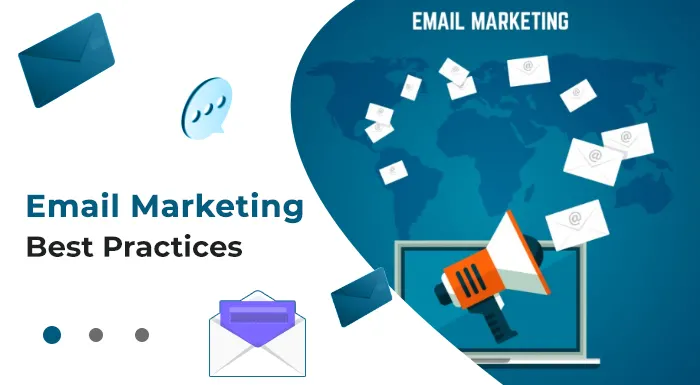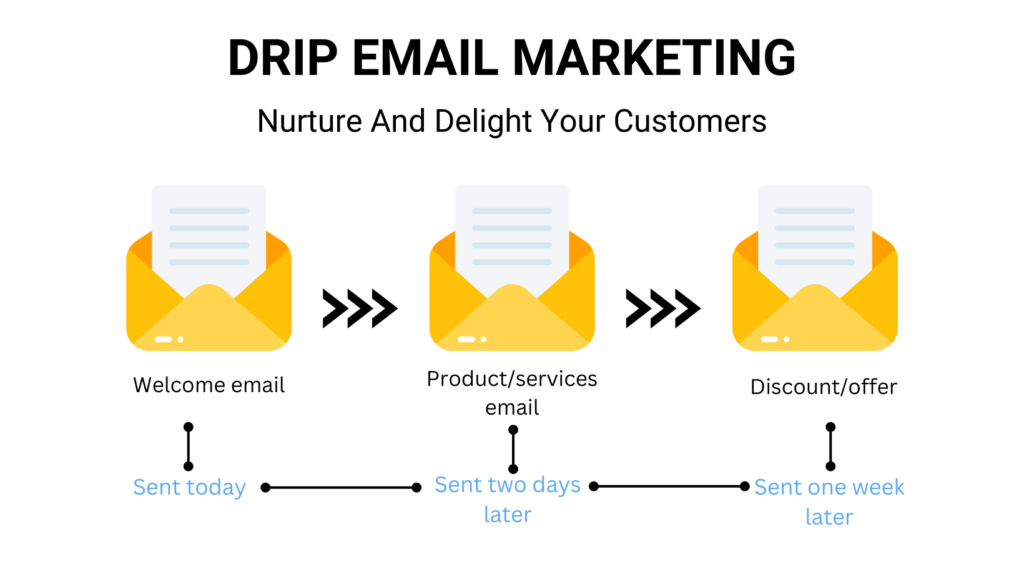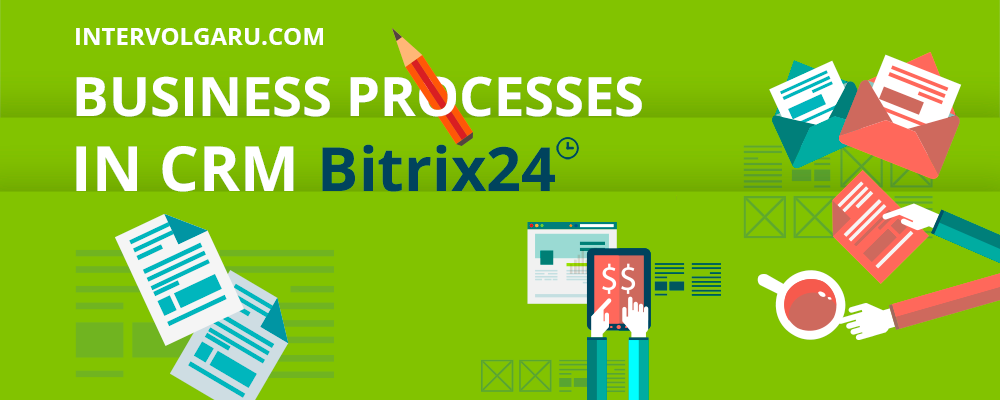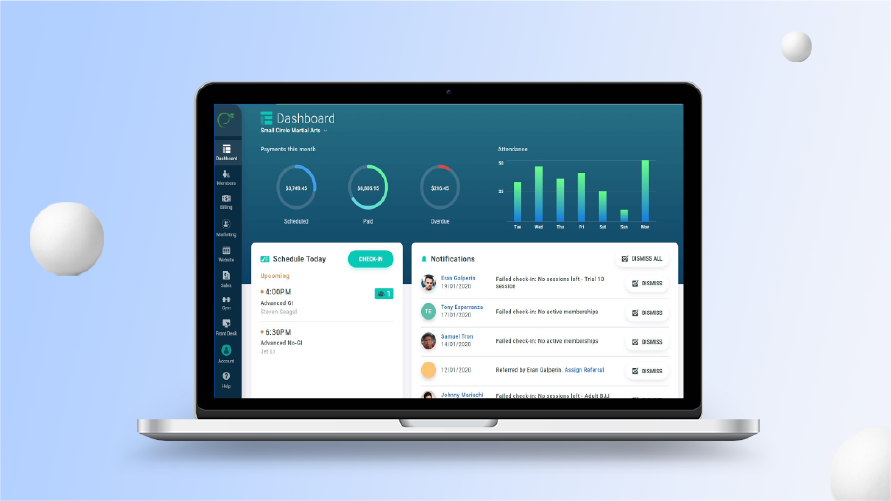Essential Small Business CRM Features: A Comprehensive Guide to Success

Introduction: Why Your Small Business Needs a CRM
In today’s fast-paced business environment, managing customer relationships effectively is no longer a luxury – it’s a necessity. For small businesses, in particular, a robust Customer Relationship Management (CRM) system can be the difference between struggling to stay afloat and achieving sustainable growth. But with so many CRM solutions on the market, it can be overwhelming to figure out what features are truly essential. This comprehensive guide will break down the must-have CRM features for small businesses, helping you choose the right tool to streamline your operations, boost sales, and enhance customer satisfaction.
Think of a CRM as the central nervous system of your business. It’s where all your customer data lives – from initial contact to purchase history, support interactions, and beyond. Without a CRM, this information is often scattered across spreadsheets, email inboxes, and the memories of your team members. This fragmented approach leads to inefficiencies, missed opportunities, and ultimately, frustrated customers.
This guide will equip you with the knowledge to identify the key CRM features that will transform your small business. We’ll explore features that help you organize your contacts, automate your marketing, manage your sales pipeline, and provide exceptional customer service. Get ready to discover how a well-implemented CRM can empower your team, drive revenue, and create lasting customer relationships.
Core CRM Features Every Small Business Needs
While the CRM landscape is vast and varied, some features are universally essential for small businesses. These core functionalities form the foundation of a successful CRM strategy and are crucial for achieving tangible results. Let’s delve into these fundamental features:
1. Contact Management
At the heart of any CRM is contact management. This is where you store and organize all your customer data. A good contact management system allows you to:
- Centralize Contact Information: Consolidate all contact details – names, phone numbers, email addresses, physical addresses, and social media profiles – in one accessible location.
- Segment Your Contacts: Categorize your contacts based on various criteria, such as demographics, industry, purchase history, and lead source. This allows you to target your marketing efforts more effectively.
- Track Interactions: Log all interactions with your contacts, including emails, calls, meetings, and support tickets. This provides a complete view of your customer journey.
- Add Custom Fields: Tailor your contact records to include specific information relevant to your business, such as preferred communication methods, product interests, or specific needs.
- Import and Export Data: Easily import contact data from spreadsheets or other sources and export it for analysis or integration with other systems.
Effective contact management ensures that your team has immediate access to the information they need to engage with customers, personalize interactions, and provide exceptional service. It’s the cornerstone of building strong customer relationships.
2. Lead Management
Lead management is the process of tracking and nurturing potential customers through the sales funnel. A CRM’s lead management features help you:
- Capture Leads: Integrate with your website, landing pages, and other marketing channels to automatically capture lead information.
- Qualify Leads: Score and rank leads based on their engagement and fit with your ideal customer profile, helping you prioritize your sales efforts.
- Track Lead Activity: Monitor lead interactions, such as website visits, email opens, and form submissions, to understand their interests and needs.
- Nurture Leads: Automate email campaigns and other marketing activities to keep leads engaged and move them closer to a purchase.
- Assign Leads: Automatically assign leads to the appropriate sales representatives based on criteria like geography, product interest, or industry.
Lead management streamlines the sales process, ensuring that no potential customer slips through the cracks. By automating lead capture and qualification, you can focus your sales team’s time and energy on the most promising opportunities, ultimately increasing your conversion rates.
3. Sales Automation
Sales automation streamlines repetitive tasks, freeing up your sales team to focus on what they do best: closing deals. Key sales automation features include:
- Automated Email Sequences: Set up automated email campaigns to nurture leads, follow up with prospects, and send personalized messages based on their behavior.
- Task Automation: Automate tasks such as creating follow-up reminders, scheduling meetings, and updating contact records.
- Workflow Automation: Create automated workflows to trigger specific actions based on pre-defined criteria, such as sending an email when a lead reaches a certain stage in the sales pipeline.
- Sales Pipeline Management: Visualize your sales pipeline and track the progress of each deal.
- Deal Stage Tracking: Track deals through different stages, from initial contact to closed-won or closed-lost, to identify bottlenecks and improve your sales process.
Sales automation saves time, reduces errors, and improves efficiency. By automating routine tasks, you can empower your sales team to focus on building relationships, closing deals, and driving revenue.
4. Reporting and Analytics
Data is the lifeblood of any successful business. CRM reporting and analytics features provide valuable insights into your sales performance, customer behavior, and marketing effectiveness. Key features include:
- Customizable Dashboards: Create dashboards that display key performance indicators (KPIs) relevant to your business, such as sales revenue, conversion rates, and customer satisfaction scores.
- Pre-built Reports: Access pre-built reports on sales performance, marketing campaign effectiveness, and customer behavior.
- Custom Report Creation: Generate custom reports to analyze specific data points and gain deeper insights into your business.
- Data Visualization: Visualize your data using charts, graphs, and other visual representations to identify trends and patterns.
- Performance Tracking: Track the performance of your sales team, marketing campaigns, and customer service efforts to identify areas for improvement.
Reporting and analytics empower you to make data-driven decisions, optimize your sales and marketing efforts, and improve customer satisfaction. By tracking your performance, you can identify what’s working, what’s not, and make informed adjustments to achieve your business goals.
5. Customer Service and Support
Exceptional customer service is critical for building customer loyalty and driving repeat business. CRM features that support customer service include:
- Ticket Management: Manage customer support requests efficiently, track their status, and ensure timely resolutions.
- Knowledge Base: Create a knowledge base of articles, FAQs, and other resources to help customers find answers to their questions.
- Live Chat Integration: Integrate live chat functionality into your website to provide instant support to customers.
- Case Management: Track and manage customer issues from initial contact to resolution.
- Customer Feedback Collection: Gather customer feedback through surveys and other methods to identify areas for improvement.
By providing excellent customer service, you can build strong customer relationships, increase customer loyalty, and encourage positive word-of-mouth referrals. A CRM can help you streamline your customer service processes and ensure that every customer interaction is positive and productive.
Advanced CRM Features to Consider
Once you’ve mastered the core CRM features, you can explore advanced functionalities that can further enhance your business performance. These features can provide a competitive edge and help you scale your operations as your business grows.
1. Marketing Automation
Marketing automation goes beyond simple email campaigns. It allows you to personalize your marketing efforts, nurture leads, and track the effectiveness of your campaigns. Key features include:
- Email Marketing Automation: Create automated email sequences based on lead behavior and demographics.
- Segmentation: Segment your audience based on various criteria to deliver targeted messages.
- Lead Scoring: Assign scores to leads based on their engagement and behavior to prioritize your marketing efforts.
- Social Media Integration: Integrate with social media platforms to manage your social media presence and track social media interactions.
- Landing Page Creation: Create landing pages to capture leads and promote your products or services.
Marketing automation saves time, improves efficiency, and allows you to deliver personalized messages that resonate with your target audience. By automating your marketing efforts, you can generate more leads, nurture them through the sales funnel, and increase your conversion rates.
2. Integration with Other Tools
A CRM is most effective when it integrates seamlessly with other tools you use. Key integrations include:
- Email Marketing Platforms: Integrate with email marketing platforms like Mailchimp, Constant Contact, or HubSpot to synchronize your contact data and automate your email campaigns.
- Accounting Software: Integrate with accounting software like QuickBooks or Xero to track sales and manage your finances.
- E-commerce Platforms: Integrate with e-commerce platforms like Shopify or WooCommerce to track customer purchases and manage your online store.
- Project Management Software: Integrate with project management software like Asana or Trello to manage projects and collaborate with your team.
- Communication Tools: Integrate with communication tools like Slack or Microsoft Teams to improve communication and collaboration within your team.
Integrations streamline your workflows, eliminate data silos, and provide a complete view of your customer data. By integrating your CRM with other tools, you can improve efficiency, reduce errors, and make more informed decisions.
3. Mobile CRM
In today’s mobile world, it’s essential to have access to your CRM data on the go. Mobile CRM features include:
- Mobile Apps: Access your CRM data on your smartphone or tablet.
- Offline Access: Access your data even when you don’t have an internet connection.
- Push Notifications: Receive push notifications about important updates and activities.
- Contact Management: Manage your contacts and access contact information on the go.
- Sales Pipeline Management: Track your sales pipeline and manage deals from anywhere.
A mobile CRM allows you to stay connected with your customers and manage your sales and marketing efforts from anywhere. This increased flexibility and accessibility can significantly improve your team’s productivity and responsiveness.
4. Customization and Scalability
As your business grows, your CRM needs to adapt to your changing needs. Key features include:
- Customizable Fields: Add custom fields to your contact records to capture specific information relevant to your business.
- Customizable Workflows: Create custom workflows to automate your business processes.
- Scalability: Choose a CRM that can handle your growing data volume and user base.
- Integration with Custom Applications: Integrate with custom applications or systems to meet your unique business needs.
- User Roles and Permissions: Define user roles and permissions to control access to sensitive data and ensure data security.
A CRM that is customizable and scalable can grow with your business, ensuring that it continues to meet your needs as your business evolves. This flexibility is crucial for long-term success.
5. Artificial Intelligence (AI) and Machine Learning (ML)
AI and ML are increasingly being integrated into CRM systems to provide insights, automate tasks, and improve efficiency. Key features include:
- Predictive Analytics: Use AI to predict customer behavior and identify potential opportunities.
- Chatbots: Use chatbots to provide instant customer support and answer frequently asked questions.
- Automated Data Entry: Use AI to automate data entry and reduce manual errors.
- Sentiment Analysis: Analyze customer sentiment from emails, social media posts, and other interactions.
- Personalized Recommendations: Provide personalized product recommendations and offers to customers.
AI and ML can provide valuable insights, automate tasks, and improve your overall CRM efficiency. As AI technology continues to evolve, expect to see even more advanced features and capabilities integrated into CRM systems.
Choosing the Right CRM for Your Small Business
Selecting the right CRM for your small business is a critical decision. It’s important to choose a system that meets your specific needs, budget, and technical capabilities. Here’s a step-by-step guide to help you make the right choice:
1. Define Your Needs and Goals
Before you start evaluating CRM systems, take the time to define your needs and goals. Consider the following questions:
- What are your key business objectives? What do you hope to achieve with a CRM?
- What are your biggest pain points? What challenges are you facing in managing your customer relationships?
- What features are essential? Which features are must-haves, and which are nice-to-haves?
- What is your budget? How much are you willing to spend on a CRM system?
- How many users will need access to the system? This will impact the pricing and features you need.
By understanding your needs and goals, you can narrow down your options and choose a CRM that is a good fit for your business.
2. Research CRM Providers
Once you have a clear understanding of your needs, start researching CRM providers. Consider the following factors:
- Features: Does the CRM offer the features you need?
- Pricing: Is the pricing affordable for your budget?
- Ease of Use: Is the system easy to learn and use?
- Integration: Does the CRM integrate with the other tools you use?
- Customer Support: Does the provider offer good customer support?
- Reviews and Ratings: Read reviews and ratings from other small businesses to get an idea of the provider’s reputation.
Take your time to compare different CRM providers and identify those that best meet your needs.
3. Evaluate Your Top Choices
Once you’ve narrowed down your choices, evaluate your top contenders in more detail. Consider the following:
- Free Trials: Sign up for free trials to test the system and see if it’s a good fit for your business.
- Demos: Watch demos to learn about the features and functionality of the system.
- Pricing Plans: Compare the different pricing plans and choose the one that best suits your needs.
- Implementation: Consider the implementation process and how easy it will be to set up the system.
- Training: Does the provider offer training and support to help you get started?
Thoroughly evaluate your top choices to make an informed decision.
4. Implement and Train Your Team
Once you’ve chosen a CRM, it’s time to implement it. This involves:
- Data Migration: Migrate your existing customer data into the new system.
- Customization: Customize the system to meet your specific needs.
- Training: Train your team on how to use the system effectively.
- Testing: Test the system to ensure that it’s working properly.
- Ongoing Support: Take advantage of the provider’s ongoing support to address any issues or questions.
A successful implementation is crucial for maximizing the benefits of your CRM. Invest the time and resources needed to ensure a smooth transition.
5. Monitor and Optimize
Once your CRM is up and running, it’s important to monitor its performance and make adjustments as needed. Track key metrics, such as sales revenue, conversion rates, and customer satisfaction scores. Identify areas for improvement and make changes to your CRM processes and strategies accordingly.
By continuously monitoring and optimizing your CRM, you can ensure that it remains an effective tool for managing your customer relationships and driving business growth.
Top CRM Solutions for Small Businesses
The CRM market is crowded, but some solutions are particularly well-suited for small businesses. Here are a few of the top contenders:
- HubSpot CRM: A popular and user-friendly CRM that offers a free version with a wide range of features. It’s a great option for small businesses that are just getting started.
- Zoho CRM: A comprehensive CRM that offers a variety of features and integrations. It’s a good choice for small businesses that need a robust and customizable system.
- Salesforce Sales Cloud: A powerful CRM that is designed for businesses of all sizes. It offers a wide range of features and integrations, but it can be more complex to set up and use.
- Pipedrive: A sales-focused CRM that is designed to help sales teams manage their pipelines and close deals. It’s a good choice for small businesses that are focused on sales.
- Freshsales: A user-friendly CRM that offers a variety of features, including sales automation and customer service tools. It’s a good option for small businesses that need an all-in-one solution.
The best CRM for your small business will depend on your specific needs and budget. Take the time to research different solutions and choose the one that is the best fit for your business.
Conclusion: Embracing the Power of CRM
Implementing a CRM is a transformative step for any small business. By leveraging the essential features outlined in this guide, you can streamline your operations, enhance customer relationships, and drive sustainable growth. Remember to prioritize your needs, research your options carefully, and choose a CRM that aligns with your goals and budget.
The right CRM is an investment in your business’s future. It empowers your team, improves efficiency, and provides valuable insights into your customers and your sales performance. Embrace the power of CRM and watch your small business thrive.
By choosing the right CRM and implementing it effectively, you’ll be well on your way to building stronger customer relationships, increasing sales, and achieving lasting success. Don’t delay – start exploring the possibilities today!





